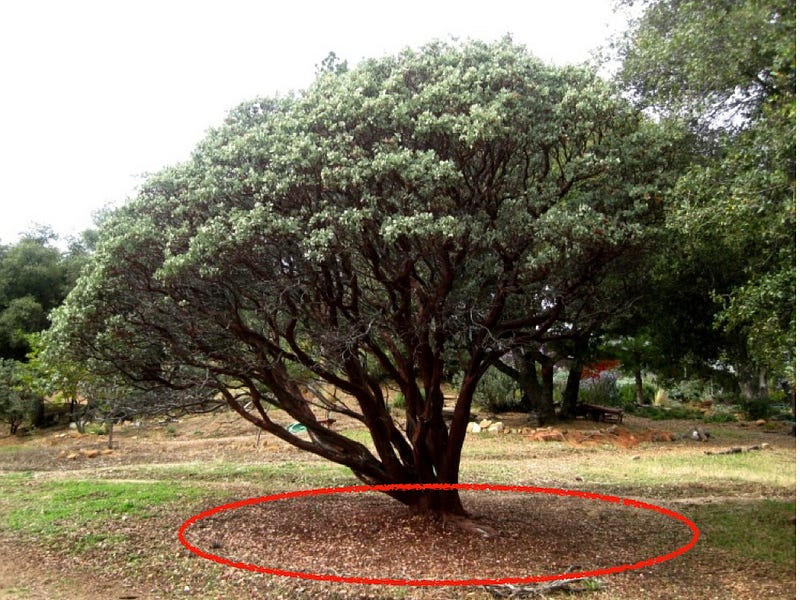
“When you plant lettuce, if it does not grow well, you don’t blame the lettuce. You look for reasons it is not doing well. It may need fertilizer, or more water, or less sun. You never blame the lettuce. Yet if we have problems with our friends or family, we blame the other person. But if we know how to take care of them, they will grow well, like the lettuce. Blaming has no positive effect at all, nor does trying to persuade using reason and arguments. That is my experience. No blame, no reasoning, no argument, just understanding.” — Thich Nhat Hanh
To the side of my house is a small patch of garden. The small garden was planted with some ugly scrub when we moved in, so I decided to change the plants. I dug up the old plants, added some new soil, some fertiliser and a new batch of plants. The plants struggled to grow for a long time, so I added some more soil and kept feeding them more.
My neighbours suggested I change plants, that the plants must not be good ones. Others suggested that I build a border around the patch to raise up the soil. Others still suggested the latest, greatest new miracle food for plants. Isn’t this exactly what we do in business? We often blame the people if there is no growth and try to fix the mechanical side of the business with the latest trend or technology? Growth, however, will only come by examining the whole, not putting lipstick on a pig. That is the focus of this Thursday Thought.
As I discovered as I excavated the garden, the real problem lay with the foundation. The patch of garden only went one foot deep and below that, there was nothing but gravel, chunks of cement and discarded rubbish from the building site that was once stood where I live. The roots of the plants didn’t stand a chance with such undernourished soil. I had opened a can of worms by trying to improve this patch and now I had to see it through.
I soon discovered the real problem behind the slow growth. I dug four feet down and unearthed four tonnes of rubble, brick or soil. After replacing the rubble with clean, fertilised, nutrient-rich and watered soil, I replanted the plants. Today they are thriving. They still need feeding every two months, but now they are strong.
There are numerous lessons here for business transformation and innovation, I have picked out five, let’s look at them next.
1. Foundations are Key

The Leaning Tower of Pisa is known worldwide for its unintended tilt. The tilt began during construction in the 12th century, caused by an inadequate foundation on one side to properly support the structure’s weight. The tilt gradually increased until the structure was stabilised by huge efforts in later centuries.
When a foundation is bad, to begin with, it takes phenomenal efforts to compensate. It is often easier to start over than to fix what you have.
I discovered this when diagnosing the real reason my plants were not growing. A stagnant, strewn-together, careless foundation, filled with a mishmash of clay, rubble and sand will not support positive growth. The only way to do this properly was to start again and create a supportive environment for the plants to grow.
2. Don’t throw the Baby out with the Bathwater

When I had emptied out the old soil, it was key to keep some of the useful soil and indeed some of the sand. This older, more experienced soil would mix well with the new compost and soil. The mix of old and new soils enable better moisture absorption and thus a healthier growing environment.
With business transformation, we must recognise and engage with experience, NOT JUST TENURE, but experience. Just because people are coming near retirement age does not mean they should be the first on the list for redundancy. The soil needed for older times may need to be refreshed, but it still adds value. Just as older people pass on information to younger, business intelligence should be passed on in a similar manner. Both older and younger worker learn from working together holistically to create a new entity. Unfortunately, in most businesses, the age gap also means a proximity gap.
3. We Need Rocks

The great British philosopher Alan Watts said: “We need rocks, rocks give us stability.” Without rocks, the ground beneath our feet would give way, like the Leaning Tower of Pisa. Rocks provide foundation when adequately mixed with the correct measures of sand and soil. Equally, rocks maintain a purpose in the growth of a garden, they provide stability and space for drainage.
Alan Watts, of course, was talking about the challenges we experience in life. Without the rocks of challenge, we would not enjoy the success of bliss. Without the dark, we would not appreciate the light and without bad, we would not appreciate good.
In business, we need rocks, not just in the form of market challenges, but as collective goals. What is our purpose? Why do we do what we do every day? What is our vision?
4. Don’t Put Lipstick on a Pig

When I first changed the plants, I wanted to believe feeding them would be enough. I wasted a lot of time, money and energy fertilising soil that was simply inadequate. In truth, I even fertilised the soil when I knew it was having little impact. The task of digging it all up and starting afresh was a much harder decision to make than believing that the easier, less-effective task of feeding the plants was action enough.
We live in a society of instant gratification and we demand instant results, but that is not how it works. You don’t build a house before first setting a foundation. To create and sustain lasting change is a long-term strategy, shortcuts simply do not work.
Organisations often like to announce a big transformation programme with an all-hands-on-deck town hall meeting. The CEO stands up and reads a speech and everyone has coffee and pastries. Everyone returns to their task, pumped up and enthusiastic, which lasts for maybe one or two weeks. This is what I call a corporate splash, it is lipstick on a pig.
The alternative is a corporate ripple. The ripple still needs the splash to cause the ripple, but the intent is much different. The ripple is long-term and must be sustained. With a powerful splash and a sustained ripple, that ripple can become a crashing wave and that is when the change comes. The ripple is sustained much like I have to continually feed the plants and tend to the soil.
Not only do I have to ensure the correct nourishment for the soil, but I need to remove any undesirable aspects of the garden, which means removing weeds and sometimes removing plants.
5. Removing Toxic Plants

Black walnut trees produce a toxic substance called juglone. This toxin inhibits germination and growth of surrounding plants. The toxin can even kill certain plant species. The extent of the damage depends on how resistant a particular species of plant is to the juglone toxin. It is also dependent on the amount of physical contact the plant has with the black walnut roots. The damage to surrounding plants depends on their maturity and plant type. For more woody trees, younger, tender growth is distorted and suffers from many ailments. For more mature trees, effects of the toxin are much more subtle, the tree wilts, declines, with eventually dies.
The Black Walnut tree wants to be left alone, it does not want to contribute to the surrounding ecosystem. Even when the leaves of this tree fall, they release a toxin around the base of the tree to impact surrounding vegetation.
While none of the plants I planted was toxic, I did have to isolate toxicity. When I dug up the plot, I had to line the bottom where the soil would come in contact with rocks and old clay from the building site.
Just like the Black Walnut Tree, some business workers have become toxic in their current environment and should be dealt with. This is painful as it involves old relationships, history and a lot of energy. Business leaders often suffer sunk cost fallacy when it comes to letting toxic individuals go. They often feel there has been a lot of investment in an individual or they may possess a lot of institutional knowledge and perhaps it would be better not to open that can of worms.
This decision must never be made lightly. Leaders must give people a chance, often a disgruntled employee does not make a toxic employee. A disgruntled employee still cares and may well be a gainsayer rather than a naysayer. Ralph Waldo Emerson once said “What is a weed? A plant whose virtues have never been discovered.”
Give people the benefit of the doubt, but always remember the lining keeps old toxic behaviours away from new soil. Your task is to nurture new models, new growth, new business, but protect the old.
It is our purpose to propagate, to create, to grow and to evolve.
“Don’t judge each day by the harvest you reap but by the seeds that you plant.” — Robert Louis Stevenson
On this week’s Innovation Show, Episode 138 is:
The Seven Laws of Guaranteed Growth: BITSING with Frans De Groot
“Those who say you cannot guarantee the achievement of goals are those who do not know how to do it.” Frans De Groot
Businesses are on the lookout for the one methodology that singlehandedly helps to achieve their goals, and definitively address issues such as “what needs to done” and “which activities to avoid”.
BITSING is a scientifically proven methodology, which enables you to predict results by using facts in order to be 100% certain of achieving goals. This episode enables factual insight into (positive) financial returns, in advance of executing strategies accordingly.
BITSING can be applied by the biggest multinational to the smallest startup. The 7 laws in this book guide you through the process of improving your business strategy.
We discuss:
How to be Unbeatable
Realise Effective Campaigns
Ensure That You Reach Your Goals
How to get that “first date” with your customer
How to get a commitment from your customer
Author and founder, Frans De Groot explains how this methodology works and how to implement it in your own business. By using examples, illustrations, and insights, Frans provides multiple entry points for readers who want to execute the BITSING strategy accordingly.
As a result of working closely with several universities, the methodology is scientifically validated, in addition to its proven performance within numerous organisations and businesses.
Frans shares how some have experienced exponential growth and reached the magic level of 300%.
This episode offers advice, tools, and direction in what is required in your organisation to achieve goals.
The methodology increases efficiency without sacrificing jobs and has even helped to stimulate employment, including recruiting top talent. BITSING has also boosted employee performance, changed stakeholder behaviour, and optimised work-life balance.
Have a listen:
Soundcloud https://lnkd.in/gBbTTuF
Spotify http://spoti.fi/2rXnAF4
iTunes https://apple.co/2gFvFbO
Tunein http://bit.ly/2rRwDad